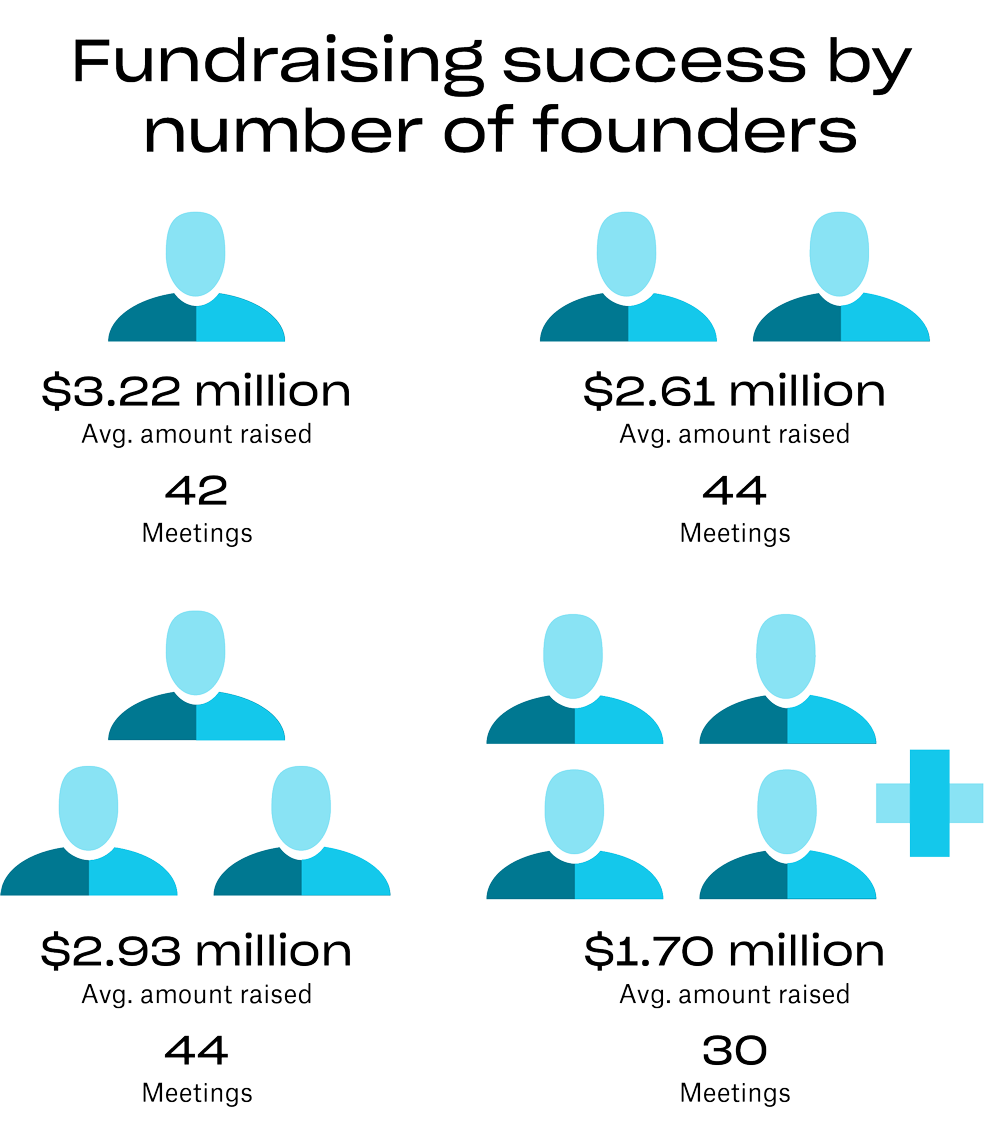Russ Heddleston
Every journey to entrepreneurship is unique. I find the world of startups fascinating because the desire to address a problem or need — often one you’ve struggled with yourself — is just too tempting to resist.
Taking on that problem on your own as a solo founder can be daunting, but it can also be freeing. Alternatively, starting up a company with co-founders can be productive yet could have its own challenges.
When I started DocSend, I never had to consider whether I wanted a co-founder, because I knew I wanted to build a company with two specific people that I liked personally and respected professionally. But for many entrepreneurs, the question of whether you can take on that challenge by yourself or want a co-founder by your side isn’t an easy one. It’s understandable why.
Going solo can give you more control and freedom to lead the company the way you see fit. It also means you’re the only one responsible for pitching VCs, running board meetings, staffing a team and making major decisions.
While a solo founder can bring on executives and managers to help with this work and these decisions, co-founders can balance out the leadership team. They can bring different areas of expertise, their own professional networks and share responsibility.
If you are starting up a company or currently running your startup all by yourself, here are four things to consider when bringing in a co-founder (or not).
Expertise
Every entrepreneur should objectively assess their skills and determine if their capabilities are well-rounded enough to run a business alone. If you’re not technical and you are starting a tech company, you may need to find a co-founder who fills that gap, or at the very least a strong engineer to lead product development.
Even if you’re technical and can begin coding from day one, you need to consider other key business areas and decide if bringing on a co-founder with expertise in those areas will allow you to get to a viable product, market traction and revenue faster.
I reached out to my network to see how they felt about the decision. I recently spoke with Aneto Okonkwo, co-founder and CEO of Chatdesk, about why he decided to bring in multiple co-founders, and he said that different areas of expertise are a big driver.
“I thought about the different functions needed to make Chatdesk successful. Since we bring together tech and personalized, human support, it was important to establish three functions: technical, operations and sales. I knew if each person could own an area, it would ensure we would achieve our mission,” he said.
The number of founders on your team may also impact your fundraising success. Our analysis found that solo founders had the most fundraising success, securing an average of 42 investor meetings and raising an average of $3.22 million, compared to companies with four or more founders, which secured an average of 30 meetings and raised an average of $1.7 million.
While the data show solo founders raise more funding, a holistic approach to understanding your gaps and how to fill them is imperative.

Founding employee versus co-founder
The best entrepreneurs ask “Why?” a lot. Why do we have this idea yet nobody has already thought of this? Why is this important? In the context of building a startup, an important “why” is: Why is a co-founder better than a founding employee?
The truth is, that’s not always the case. Even if you find some gaps in your skill set, it may be better to go solo and bring on founding employees to oversee areas in which you need additional expertise.
For example, if you’ve already developed a concept, it may make more sense to secure seed funding and then hire strong people to round out the team. When I recently spoke with Thomson Nguyen, founder and CEO of Nearside, I was surprised to learn that what started as a co-founder search ended up becoming a founding employee mission.
“I had clarity into what I wanted to build but didn’t have the same clarity into what a co-founder would look like. I realized that it was easier in the moment to continue to talk to users and build our product rather than take the time to find a co-founder,” he said.
Conversely, you may have identified a problem to solve, but don’t know how to solve it. With a co-founder or co-founders, more minds at work can help you identify how to answer the question and begin building the solution.
Who’s in charge here?
Investors may wonder who’s in charge when you have multiple founders and will be interested in the equity split. They want to feel confident in defined roles so they won’t have to deal with any dissent among co-founders.
Your organization will also benefit from eliminating confusion over who can make critical decisions for the various areas of business, and the CEO can trust those individuals to act decisively.
“At the end of the day, investors are really trying to understand how you think about your company, how you think about the market and if you are in this for the long haul,” said Okonkwo. “Investors have to trust you’ve chosen good people.”
The good news is that every part of the process is a learning opportunity for future ventures. Nguyen likes to think of the first time as a rollercoaster with blindfolds on. The second time is a rollercoaster without a blindfold but still quite a rollercoaster.
Distribute the burden, share the success
Entrepreneurship isn’t for the faint of heart. Being a founder means lots of sleepless nights and second-guessing, which is one reason so many seek a co-founder. It’s nice to have someone to problem-solve with, vent to and confide in when things are tough. And because everyone is on a vested schedule, everyone has skin in the game.
That doesn’t mean founders don’t have other support systems. An investor, mentor or other founders can help fill the void and provide a sounding board, and so can your executive team.
“As a solo founder, I find support within my executive leadership team, where I can share things I’m working on as an individual, but also the things I’m working on as the CEO, and that the company is working on,” Nguyen said.
Family and friends also serve as support, but it’s important to have transparency. It’s important to take a hard look at their personal financials, and if there is a significant other in the picture, to have a frank conversation about it.
Talk about what happens in two years if you still don’t have revenue, because these people are in your business with you even if they don’t have a title. For many founders, their spouse even acts the role of “silent co-founder.”
It’s your choice
There are clearly advantages and challenges whether you choose to go it alone or have a co-founder. Having a co-founder can help with overseeing a critical area of the business and helps with tough decisions. On the other hand, solo founders can champion their vision and execute their strategy, but they still need to seek resources to address any skill gaps, and identifying a support system early is vital.
The most important point to consider is this: How would having a partner (or several) ensure the business is sustainable? Before doing it alone, determine what barriers exist without a co-founder and actively seek those additional resources. Whichever route you choose to ultimately pursue, make sure that it’s the path that will best position your business for long-term success.































Comment